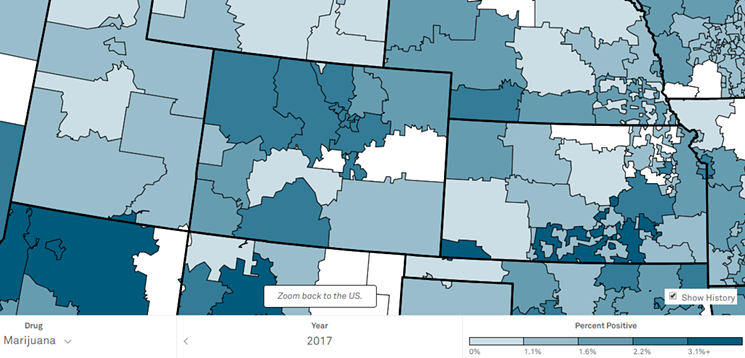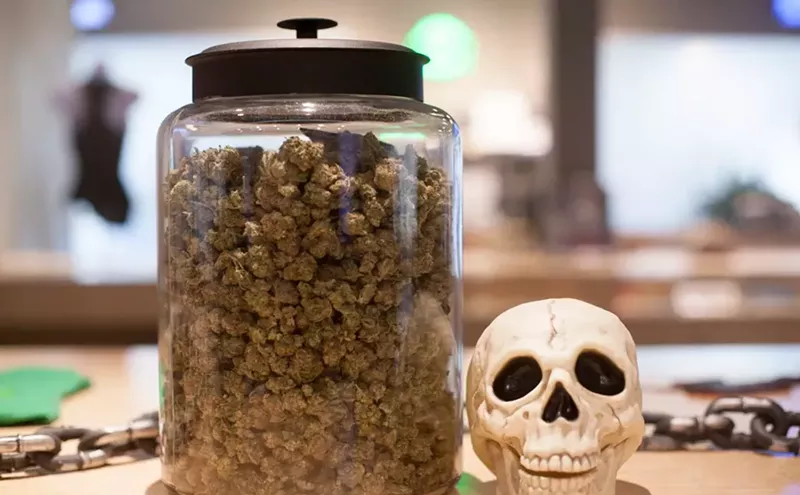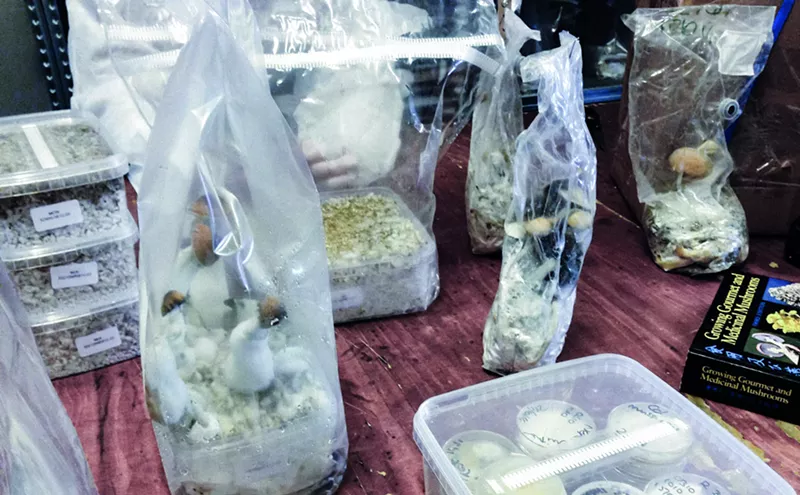Colorado's percentage of drug tests failed because marijuana — at 2.5 percent — was slightly above the 2 percent national average. Still, Colorado came nowhere near the rates of Nevada (43 percent), Massachusetts (14 percent) and California (11 percent), all states that approved recreational marijuana legislation in 2016.
In a statement accompanying the study, Quest science and technology director Barry Sample said, "While it is too early to tell if this is a trend, our data suggests that the recreational use of marijuana is spilling into the workforce, including among individuals most responsible for keeping our communities safe."
Sample might think it's too early to determine if the drug-test results are a trend, but Smart Approaches to Marijuana didn't hesitate to jump on the study. "This data mirrors the results we saw when Colorado and Washington legalized marijuana and are numbers we can expect to see any time a state foolishly follows their example," SAM founder Kevin Sabet said. "Do we want our pilots, doctors and truck drivers stoned? We have to slow down this reckless experiment of pot legalization."
But according to Quest results from past years, Colorado never saw anything close to the bump in marijuana-positive tests experienced by Nevada, Massachusetts and California. Colorado's marijuana-related failure rate was just 1.9 percent in 2013 (the year after voters approved recreational marijuana), 2.2 percent in 2014 and 2015, and 2.5 percent in 2016. Washington's rate, sitting at 2.6 percent in 2017, saw similar modest increases from 2013.

Colorado's rate of marijuana-positive drug tests rose from 1.9 to 2.5 percent from 2013 to 2017.
Quest Diagnostics
Karen Booher, president of Denver employment agency J. Kent Staffing, says that her clients in various industries have indeed faced a shortage of employees thanks to marijuana-positive drug tests, but adds that Colorado's strong economy was low on workers to begin with. "Not every company does marijuana tests anymore, but I think the ones that do are having an increasingly hard time filling their positions," she adds. "Coupled with the very low unemployment rate, it makes it even more challenging for companies that drug-test."
Industrial companies and national corporations with sweeping drug policies are the employers that have the most difficult time in states where weed is legal, Booher suggests: "In more industrial sectors, where they're working with machinery, driving regularly — that sort of stuff — they're testing more. A lot of [national] companies also just have a policy that covers every state."
In 2012, Dish Network's Colorado branch fired paralyzed medical marijuana patient Brandon Coats for failing a drug test even though he'd never been accused of being stoned on the job. Coats took his former employer to court, but the Colorado Supreme Court eventually ruled in Dish's favor because marijuana remains illegal under federal law, and Dish's business stretches outside of Colorado.
Because THC, the psychoactive compound in marijuana that drug tests search for, bonds to fat cells, it can stay in the system for weeks or months after consumption and long after its effects wear off. The distinction between testing positive for THC and actually being high has caused significant problems for law enforcement agencies attempting to detect impairment, as well as for employers testing for drugs. To combat the issue, the Denver chapter of the National Organization for the Reform of Marijuana Laws has been championing a new kind of employer drug testing aimed at detecting cognitive impairment rather than analyzing blood, hair follicles or urine.
"You shouldn't fire someone on a Wednesday for something they did on a Saturday," says Denver NORML director Jordan Person. "When you're testing for impairment, you're testing right now, not what you did on Saturday night with your friends. 'What'd you do today?' That's the more important question."
Person led lobbying efforts at the Colorado Legislature earlier this year, in hopes of pushing a bill that would've implemented the technology while also preventing businesses from blanket termination of employees for positive marijuana tests. NORML secured a tentative sponsor for the potential bill in the House of Representatives on the condition of a finding a Republican sponsor in the Senate, Person says, but the group was unable to move the needle.
She plans to lobby for the same technology at the Capitol next year.













